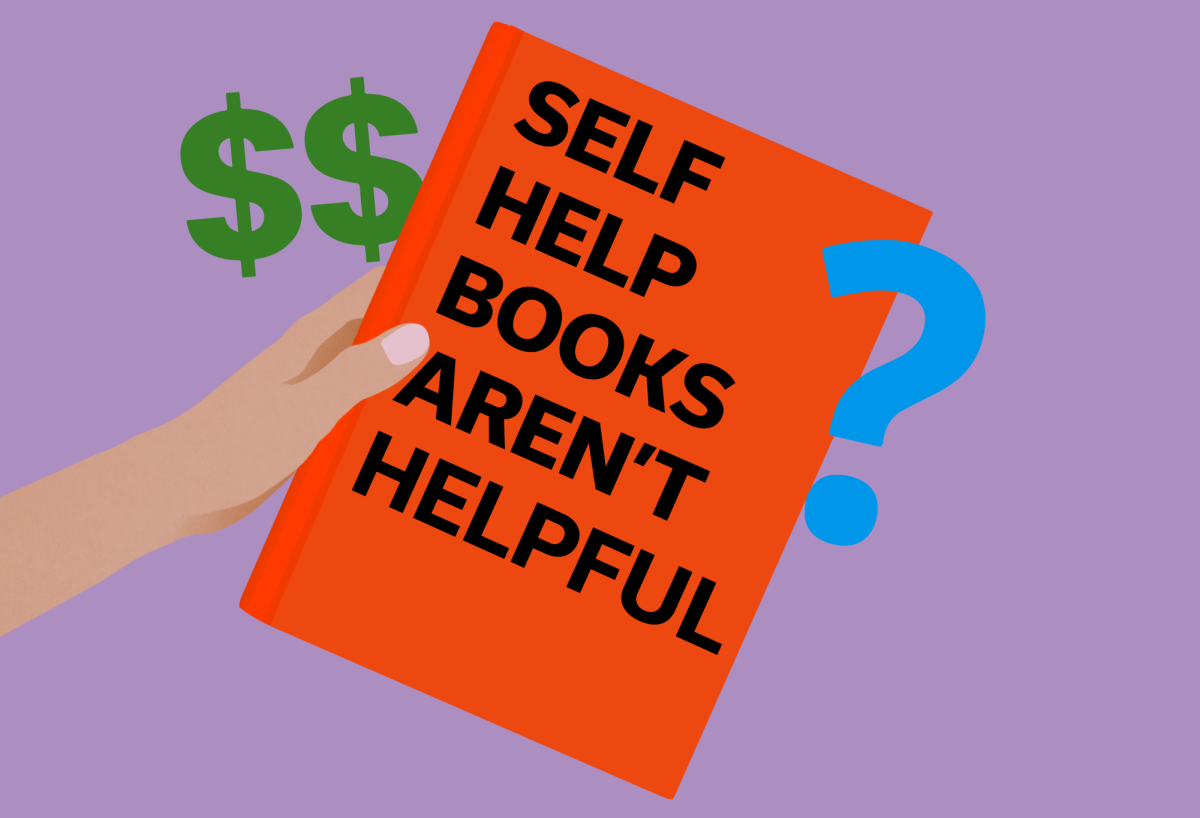We’re living in an era of self-care.
Videos detailing tips and tricks for skincare regimens, fragrances that will last the longest, exercise routines and healthy diets have been circulating around the internet as “clean girl” aesthetics and New Year’s resolutions have inspired people to improve their living habits.
Despite this recent uptick in physical improvement, there has been little discourse on the improvement of mental health, which could be especially dangerous in a world where social media is the primary influence over young people. Due to this shortcoming, many have sought out sources beyond social media to enhance their states of being.
In striving for physical and mental self-actualization, many are turning to so-called “self-help” books in hopes of improving their mental states in ways that will improve their quality of life.
Though compelling in nature, self-help books are often misleading.
They provide unrevolutionary and cliched ideas about ways to make substantive changes, under the guise that their tips will completely change a person’s life for the better. In reality, most of these books are hardly influential and prey upon people who are in vulnerable mental states.
One of the most popular modern self-help books, “The Subtle Art of Not Giving a F*ck,” exemplifies my contempt with this genre. Throughout its 272 pages, author Mark Manson emphasizes his main thesis, that people should only engage in activities from which they gain joy, through personal or general anecdotes (all while using quite a bit of profanity, for humor and relatability).
To me, this kind of advice is not worth paying the $15-26 price tag. Information like this can be found on TikTok pages, blogs and other internet pages focused on boosting self-esteem and improving a person’s lifestyle, if not something we could organically think of ourselves.
The reality is, most of the books in the self-help genre are pretty similar to Manson’s. From “Atomic Habits” to “You Are a Badass,” people who believe they have mastered life decide to share their enlightenments with the rest of the general population — often using humor appealing to the millennial generation — in the form of a book that provides them with funds that make their cushy lifestyles a reality.
Though these books are often, in my opinion, substanceless, some of them even provide information that can be misleading to its readers.
One of the best examples of how this could play out is with Gary Chapman’s “The 5 Love Languages.” These love languages — words of affirmation, physical touch, receiving gifts, acts of service and quality time — have become pervasive in modern society without many people knowing about their origins.
Chapman, a conservative Baptist pastor, coined the “love languages” as a way to provide marriage counseling to the patrons of his church, citing a lack of understanding one person’s love language as the cause of the failing relationship rather than other fundamental differences. In his book, Chapman claims that understanding your partner’s love language will help anyone fix their relationship, no matter how damaged, which can lead to manipulation and confusion in relationships.
“The 5 Love Languages” characterizes the problem with this genre. It gives hope and “solutions” to people in the form of punchy jargon or fun quizzes, all while making meaningless or, in some cases, outright harmful claims about how a person should change their life.
Instead of relying on these books for improved mental health, we should save time and money by focusing on ourselves and our own happiness. By figuring out our own needs without the use of external resources, we are able to take our lives into our own hands and become the best versions of ourselves we can be.

































































































































































